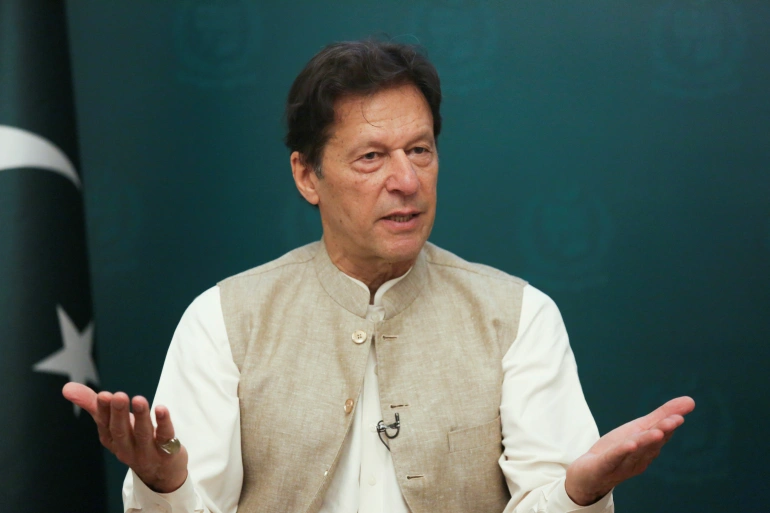No Pakistani prime minister has ever completed his term in office [File: Saiyna Bashir/Reuters]
Khan, 69, surged to power in 2018 with the military’s support, but recently lost his parliamentary majority when allies quit his coalition government
Pakistan’s Parliament has backed a vote of no confidence against the country’s Prime Minister Imran Khan.
The decision wil be a massive blow to Mr Khan’s hopes of continuing to stay in power.
Khan, 69, surged to power in 2018 with the military’s support, but recently lost his parliamentary majority when allies quit his coalition government.
It comes after Khan’s allies blocked the no-confidence motion last week and dissolved the lower house of parliament, prompting the country’s Supreme Court to intervene and allow the vote to go through. The prime minister’s supporters claim there is a foreign conspiracy to oust him.
Opposition parties say he has failed to revive an economy battered by COVID-19 or fulfil promises to make Pakistan a corruption-free, prosperous nation respected on the world stage.
The cricket star turned politician has vowed to “struggle” against any move to replace him.
The editor-in-chief of the Friday Times Najam Sethi said Imran Khan seemed bent on defying the orders of the Supreme Court.
“That means he is either on a politically suicidal path or is being egged on to continue resistance in the expectation of last minute support/intervention from elements in the Miltablishment,” he said, referring to the military.
Before Saturday’s session was adjourned, opposition leader Shehbaz Sharif, expected to become prime minister if Khan is ousted, urged lower house Speaker Qaiser to ensure the vote was carried out as a matter of priority.
The voting came after the country’s powerful army chief General Qamar Javed Bajwa met Khan, two sources said, as criticism mounted over the delay in the parliamentary process.
Lower house Speaker Asad Qaisar, a member of Khan’s Pakistan Tehreek-e-Insaf party, who had adjourned the house three times on Saturday, announced his resignation, heightening the drama in the chamber.
“The country’s interests must be the priority,” he said.

